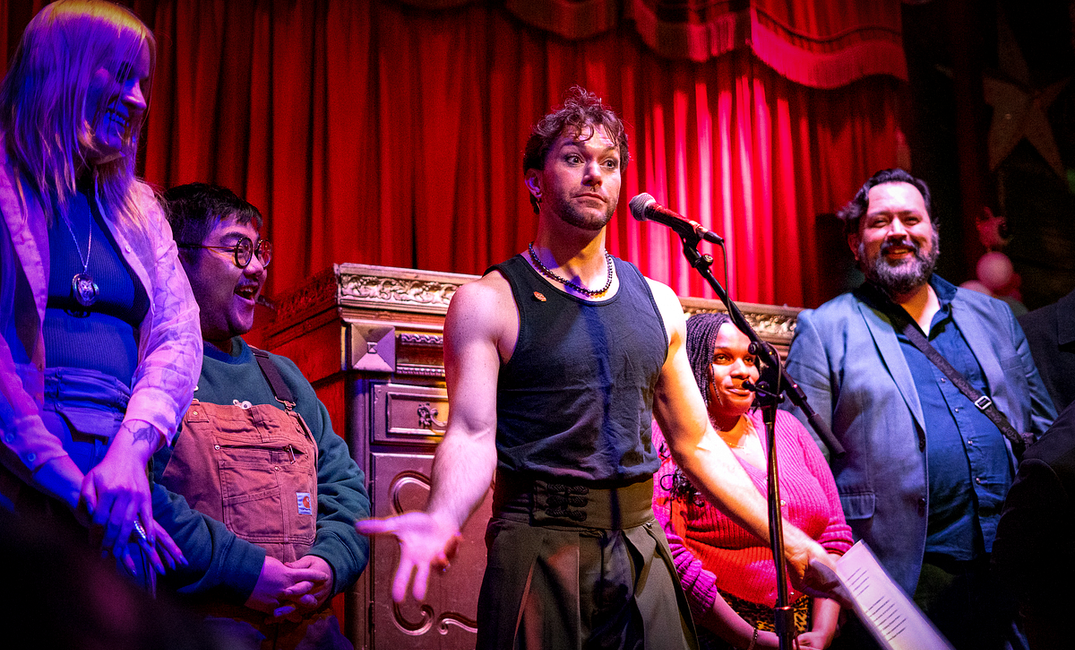The audience at the Make Out Room murmured with unease, chuckled nervously, then laughed warmly. It was a wild ride of emotions as Baruch Porras-Hernandez recounted his childhood routine: Setting booby traps by his window to protect himself and his mother from his mentally ill and abusive father. One night, they found him hiding in the closet, armed with knives and ropes. His mother held a knife to his throat, and he never came back.
“Is this the happy ending?” I thought.
Happy Endings isn’t a consortium of perfect people whose lives are fit for a fairytale. It’s a group of people who come together and retell shitty situations, some are personal experiences, some factual — and in other monologues, it’s unclear. Once a month, five writers work through life’s messy moments on a stage and in front of a hundred people.
I know this all sounds dark but I did really enjoy it, and I freely admit this kind of show is a new experience for me. There’s joy and meaning in difficult situations — and that’s what Happy Endings reminded me.
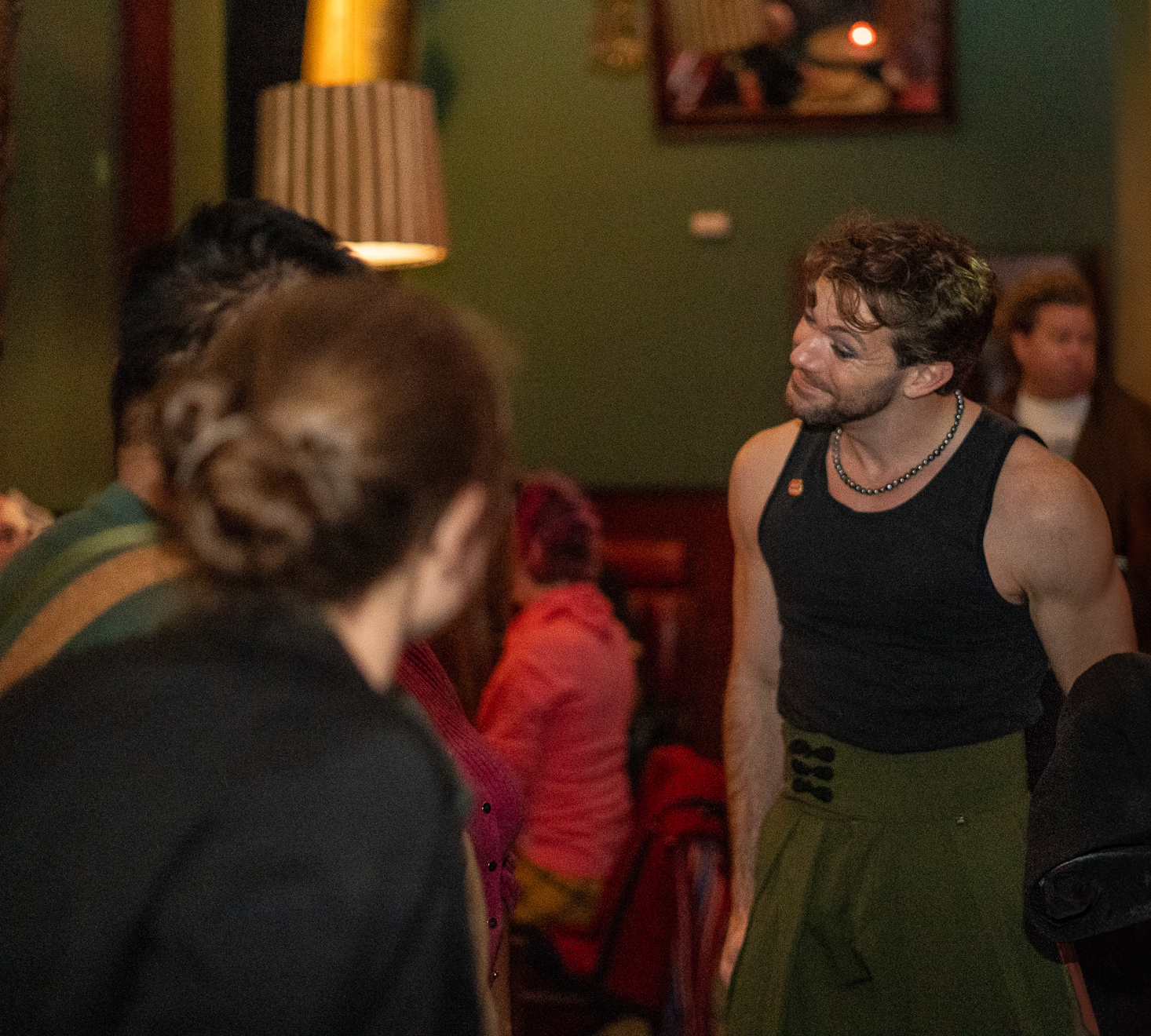
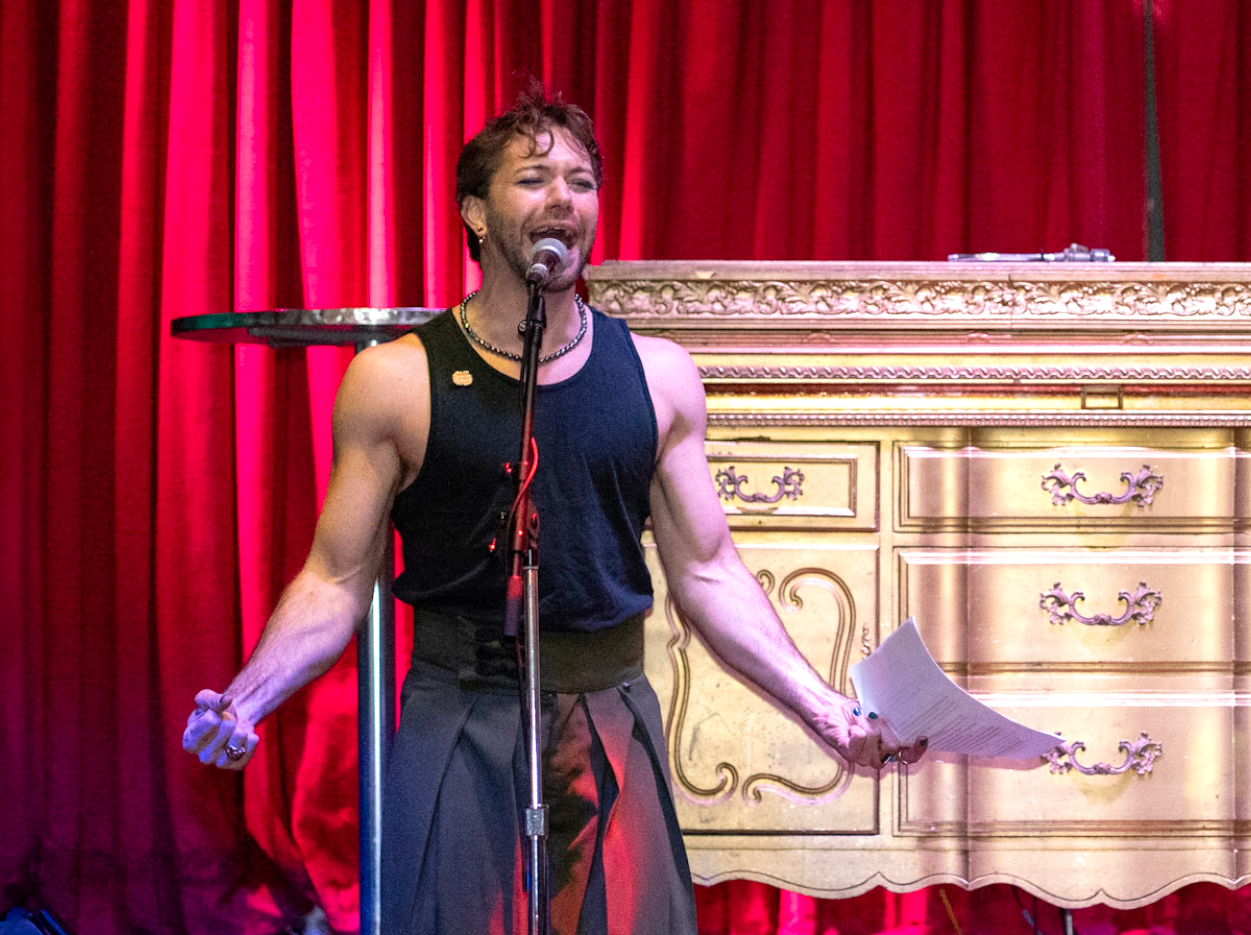
Joe Wadlington — known on the drag circuit as Jubilee — has been hosting Happy Endings with Danielle Truppi for six years. I met Wadlington last month at Drag on Ice, where he performed what was an unfamiliar sport to him. With the exception of one spill, he did great — but at Happy Endings, Wadlington shined. He and Truppi are rays of light in a rather dark bar, leading the crowd through the process of emotional release and self-reflection.
“I believe art is a group project and culture is something that happens when a group of people care deeply about an art form, a vibe, or a movement,” Wadlington told me.
He began going to readings when he moved to San Francisco from the Appalachian foothills of Morristown, Tennessee. As their two favorites, Write Club and Shipwreck began to fade out, the pair decided to take it on themselves to continue the tradition.

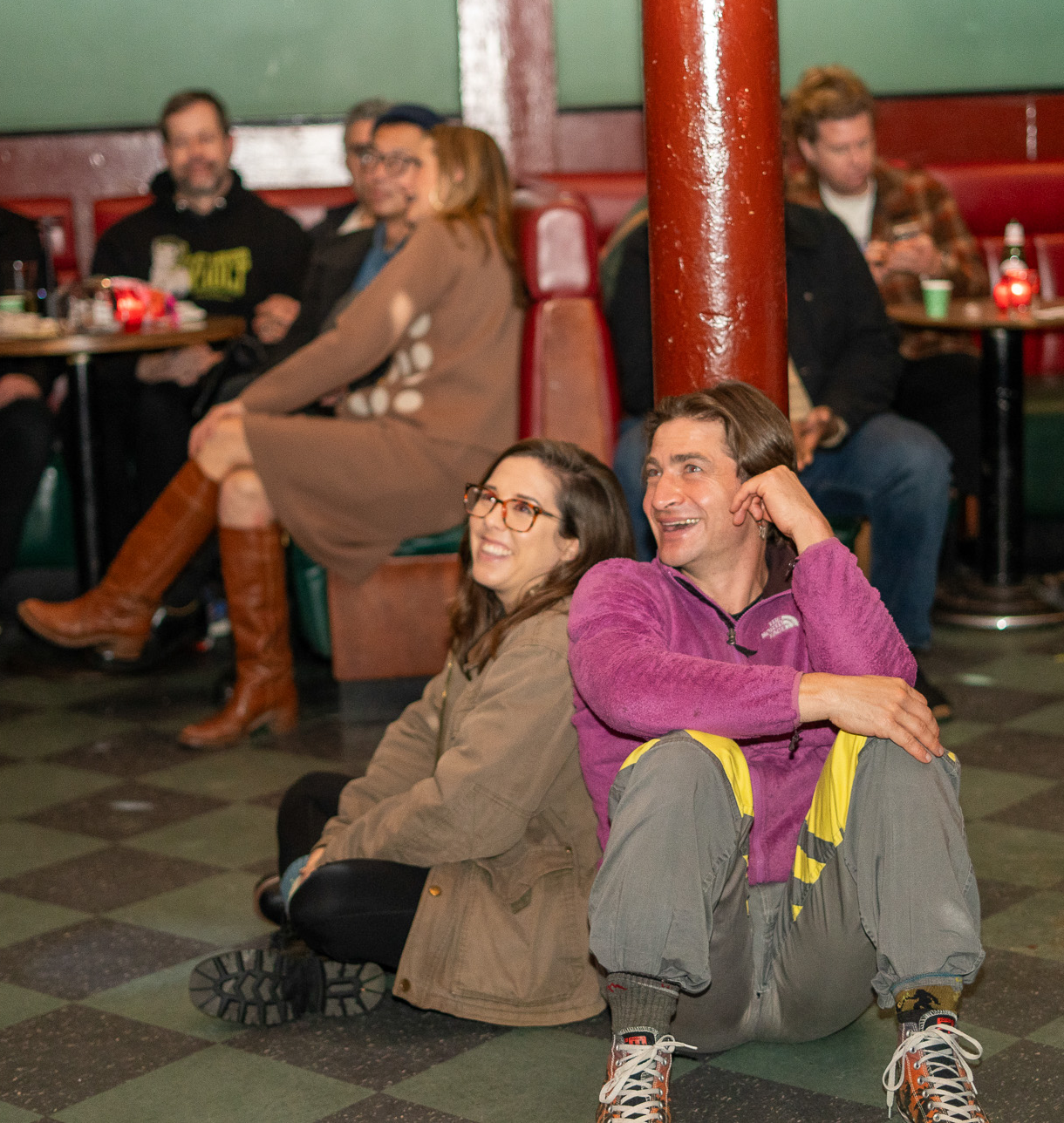
Sharing poetry in public feels like a brave but puzzling choice — laying your emotions bare for all to see, and I often experienced mixed feelings after a monologue.
The crowd itself was part of the performance, too, or so it seemed. I couldn’t discern whether a heckler was dealing with personal challenges or simply drunk. Her third outburst prompted Hieu Minh Nguyen to deliver the line, “Shut up, bitch!” with such precision it felt like part of the act. He transitioned effortlessly, channeling his frustrations into a cutting monologue about high school bullies, punctuating it with, “No, I don’t care what your baby looks like.”
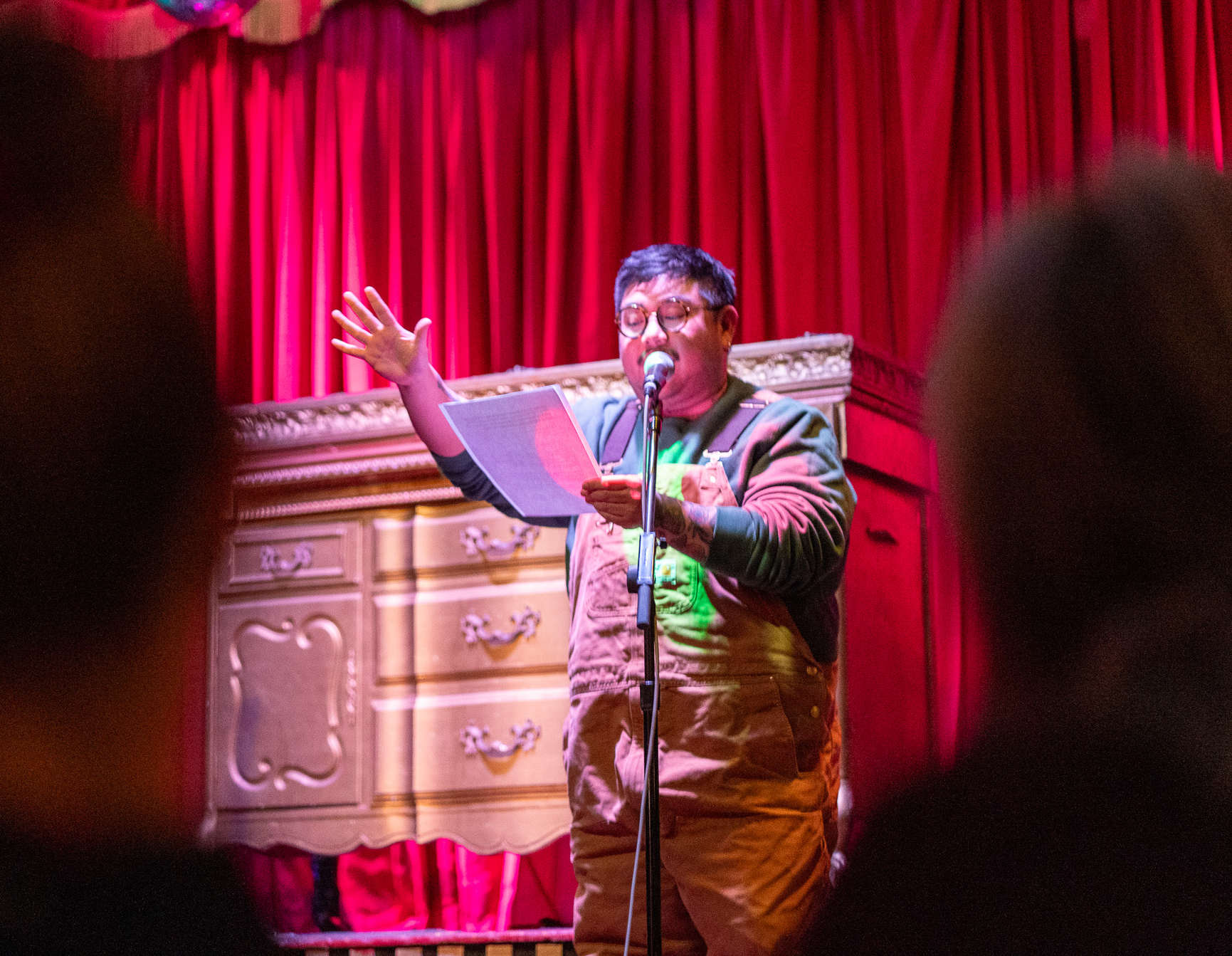
As I wandered back in from a bathroom break, a man was surmising what goes through his clients’ heads when they use his bathroom. He must be a psychiatrist, I thought. Who else has clients in their bathrooms?
“When my clients are in my bathroom and they notice my gonorrhea medicine,” he took us through a battery of scenarios. Ah, he was a sex worker — in this story at least, but was he really? “The best part of being a hooker is that I don’t have to have a LinkedIn account,” he smiled with indiscernible emotion.
I do hate LinkedIn, I thought, but was that a happy ending?
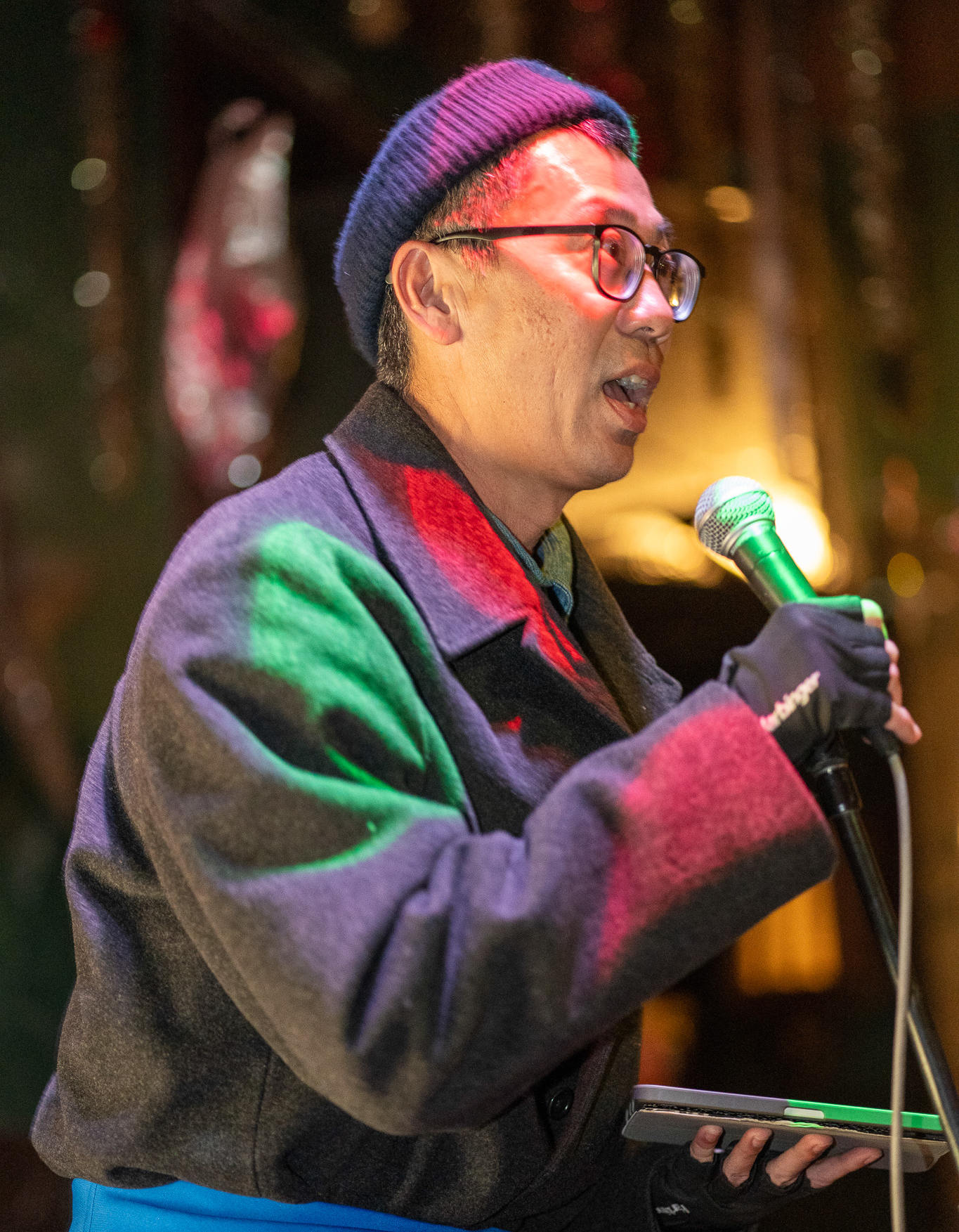
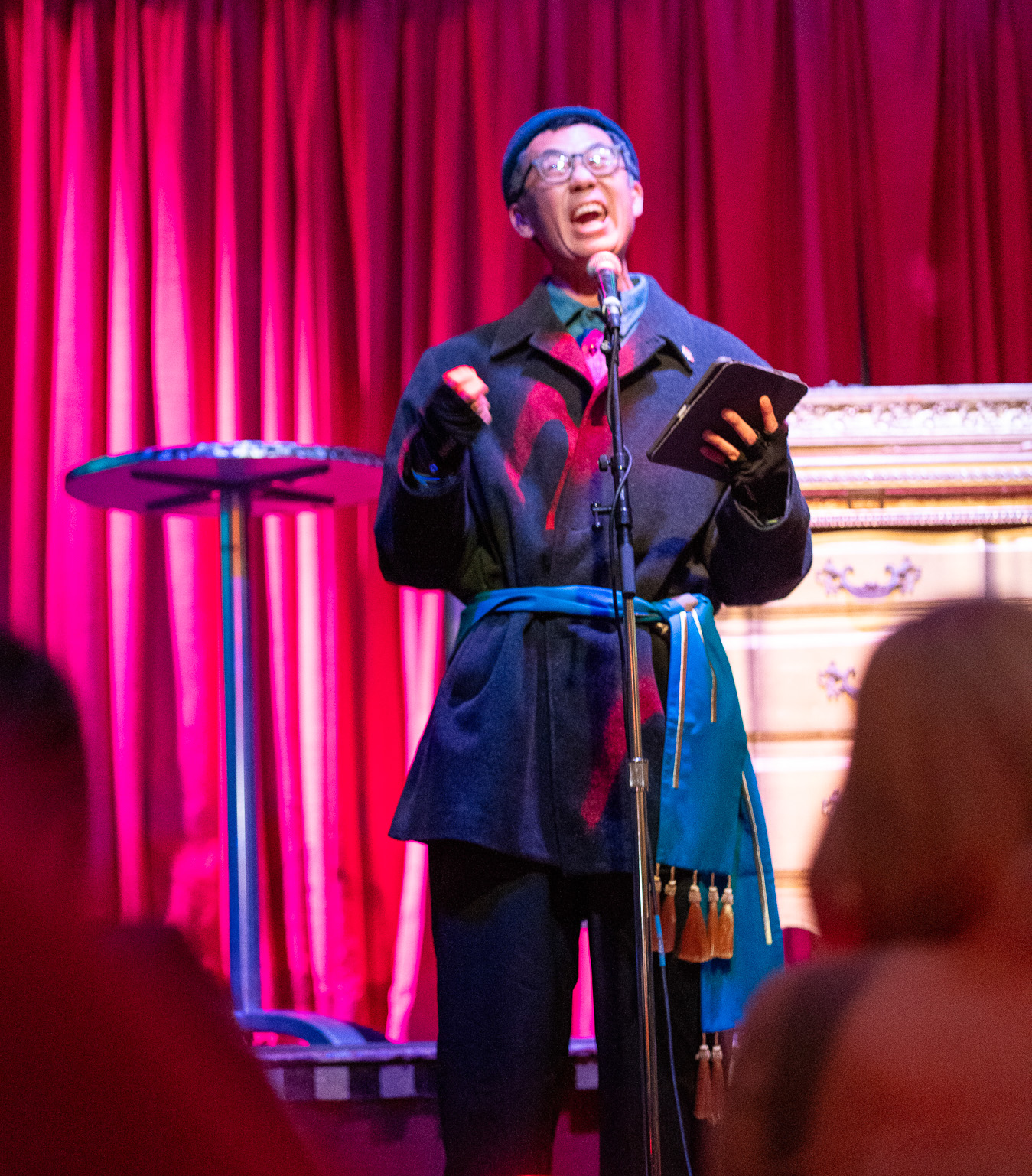
London Pinkney painted a vivid picture of personal challenges, discussing moments of betrayal, harassment, and rejection. “Everyone told me that my trauma would make a great story,” she said at the outset, “so I’m about to bum you all the fuck out right now.”
Her words lingered, and I hoped for a turning point that maybe I missed while taking photos. Maybe she would find God, become a volleyball star, or fall in love and have a family. But I left that monologue feeling heavy.
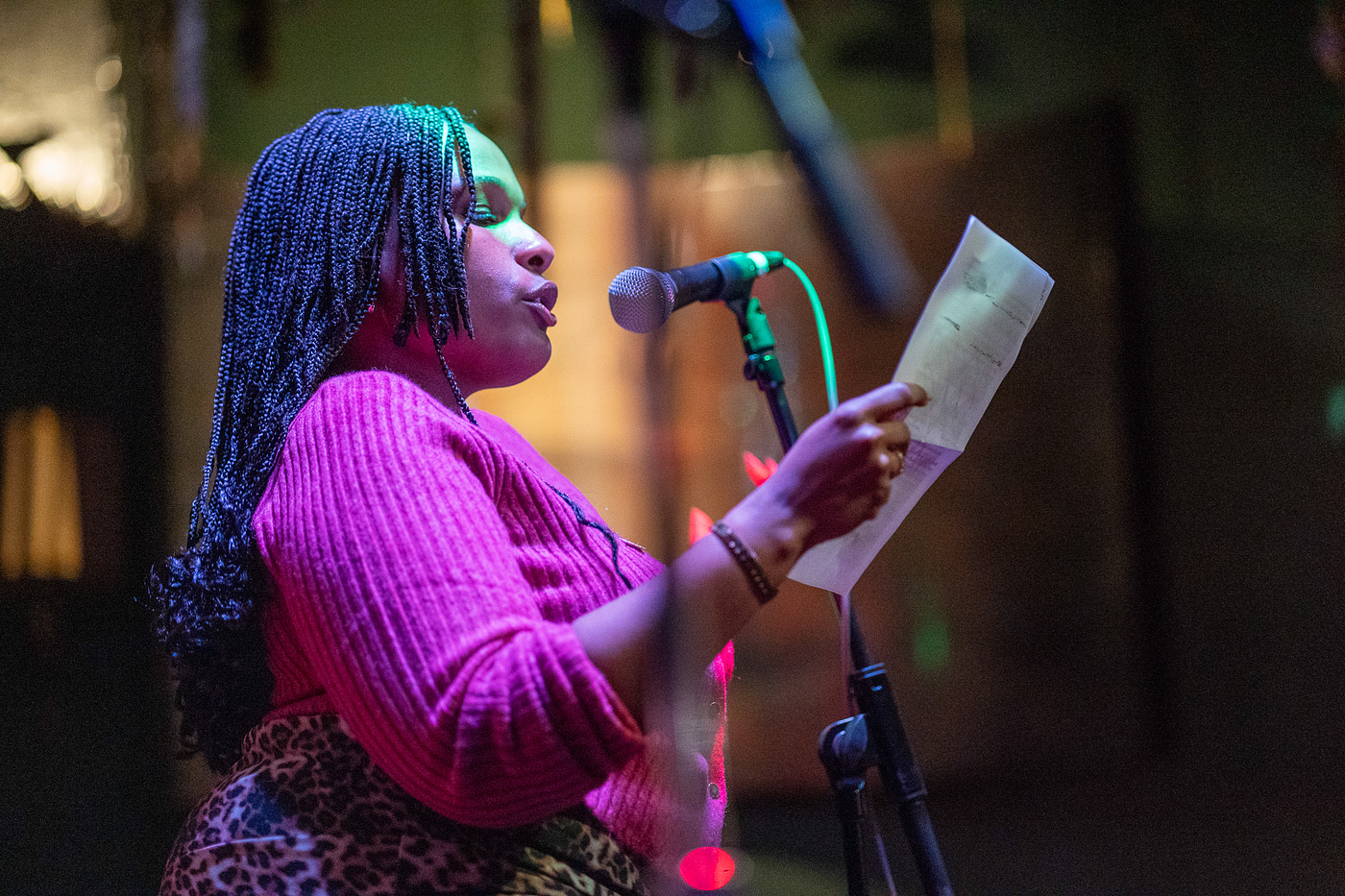
Some months are loosely based on themes. I spotted one dubbed a “menstruation celebration,” another on micro-plastics and aggressions. Each show raises money for the writer through suggested donations — and we appreciate artists being compensated for their work. Writers’ stories may or may not contain happy endings because Wadlington and Truppi consider happiness an experiment.
“We’re interrogating happiness,” Wadlington told me. “And sometimes we even surprise ourselves with what is a silver lining versus what is a happy ending. It’s all about perspective.” Wadlington said that even if you’re having the worst week ever, he wants you to feel like you can go to Happy Endings and leave feeling energized.
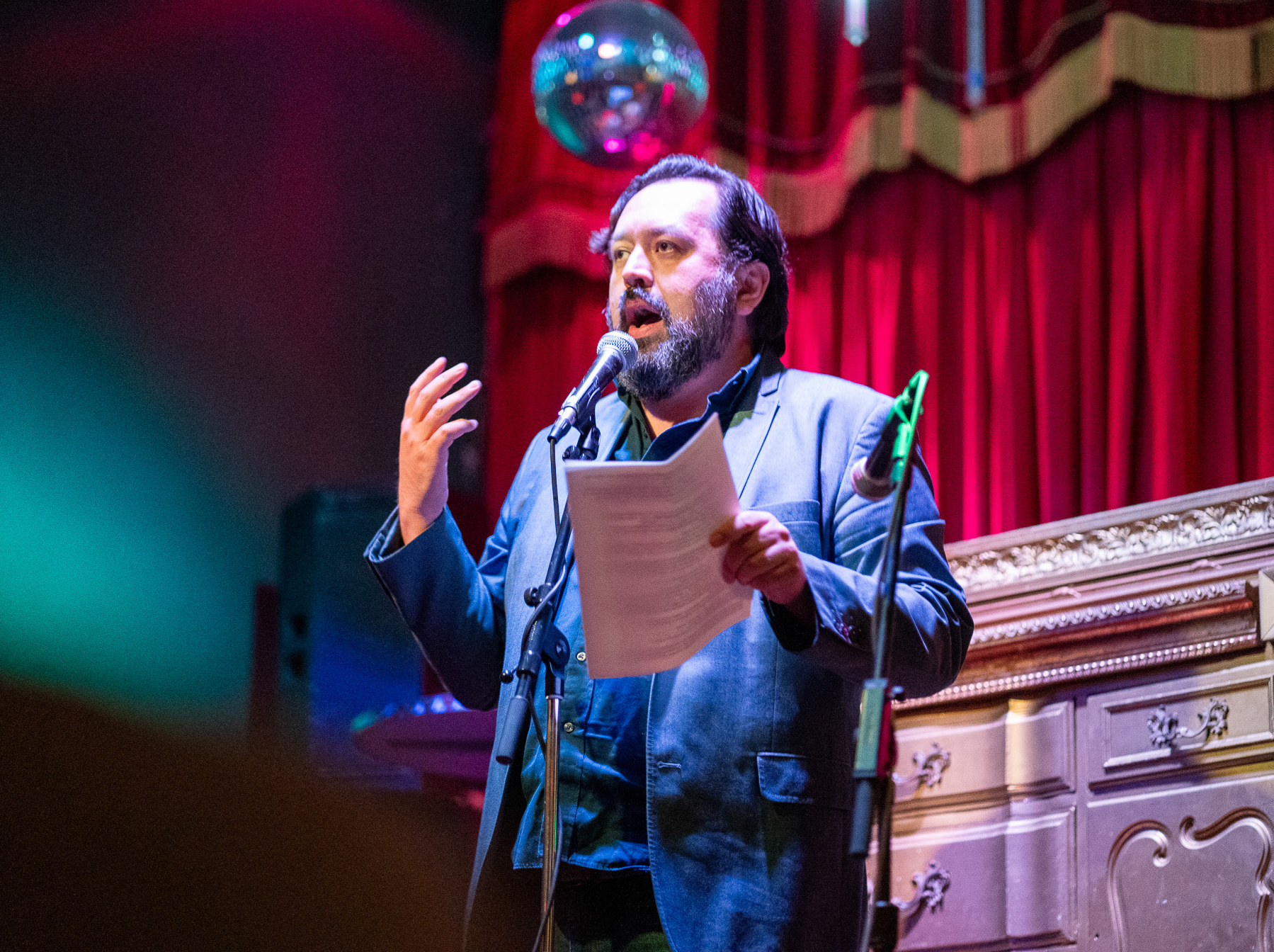

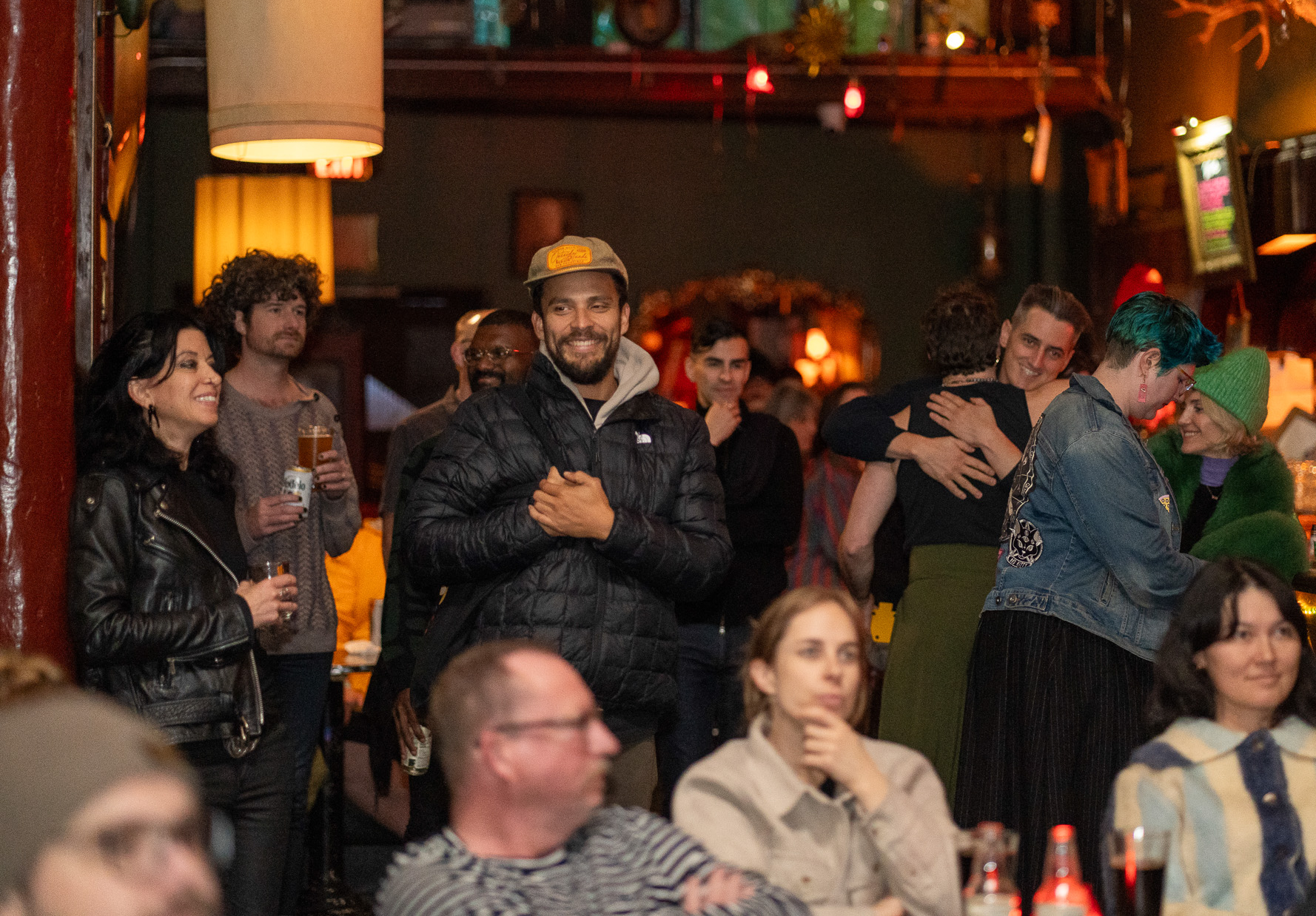
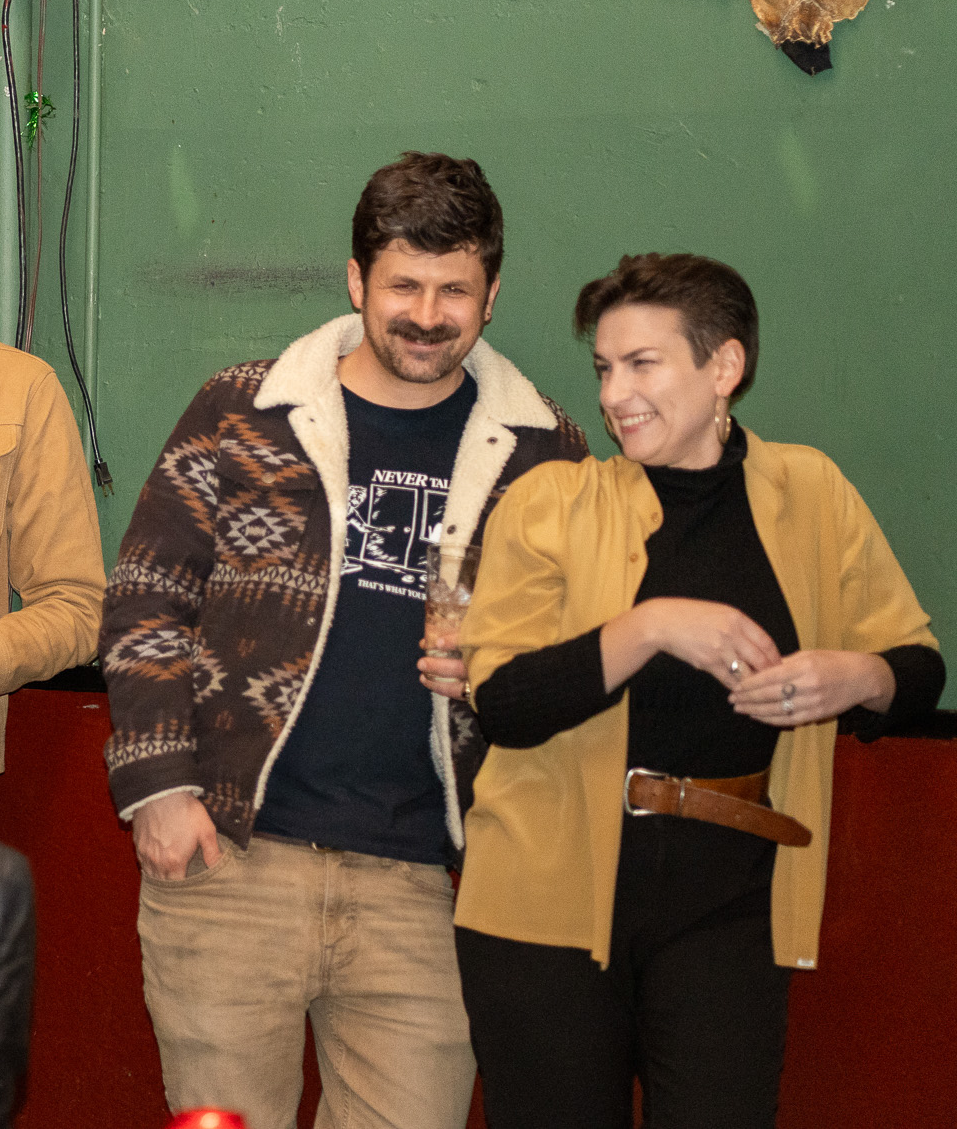
At its core, Happy Endings isn’t really about resolution or trying to make sense of life’s chaos. It’s a process of sharing — the vulnerability of standing in front of a room full of strangers and putting your story out there raw and unpolished. I left the Make Out Room unsure how to feel. I laughed, cringed, and felt genuine empathy for the people on stage. But I also left lighter, as if the weight of their stories had balanced out some of my own.
Maybe the real happy ending is not the promise of a perfect resolution, but the permission to sit with life’s imperfections and find meaning in sharing.
Courtney Muro is a San Francisco-based content strategist, producer, designer, and creator.
The Bold Italic is a non-profit media organization, and we publish first-person perspectives about San Francisco and the Bay Area. Donate to us today.



